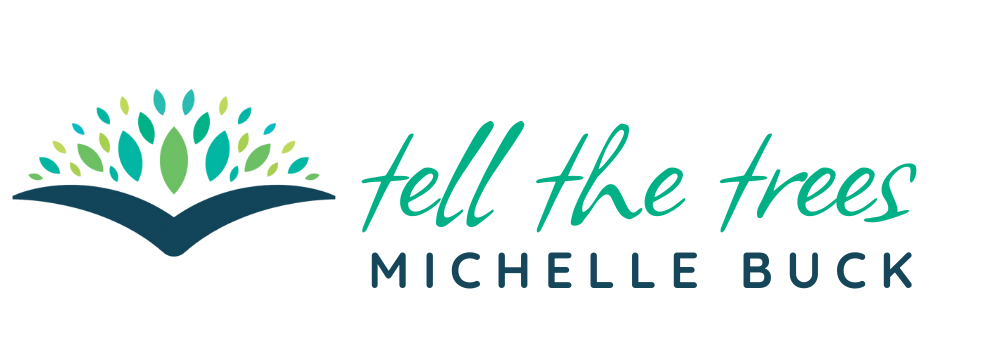by Michelle
Share
by Michelle
Share

Is writer collaboration really magic?
magic, a concept used to describe a mode of rationality or way of thinking that looks to invisible forces to influence events, effect change in material conditions or present the illusion of change.[1]
When it comes to promoting your author brand, writer collaboration is the invisible force that influences events and effects change.
It might seem odd to suggest that authors are collaborators. Most people envision authors sitting at a computer, typing their life away. They don’t consider authors as people who enjoy networking, team effort, or making friends. Writing is often a solitary career, but that doesn’t mean you have to be anti-social and distant. Writing can be a fun way to find other people that are in the same genre as you. Not only that, but you can learn quite a bit from them.
The magic ingredient starts with changing your thoughts about your writing career.
After reading books by experienced authors, each author echoed the same thing: You need to connect with other authors if you want to be successful.
If you are a new author, writer collaboration might arouse feelings of fear. Can you relate to these thoughts?
- You can’t imagine a way to connect with other authors while sitting at home behind a computer screen
- You are introverted and words like “collaboration” give you hives
Let me ease your concern (one introvert to another): collaboration doesn’t have to be a big, bad dragon.
Even simple things can lead to writer collaboration and connecting with other authors.
While some people are looking to co-author a book, that’s not what this article is about. This article is focused on connecting with authors so you can mutually benefit from each other’s audience. But the core reason for writer collaboration is to learn, grow, and possibly build a support system of other writers. And author friends, in my humble opinion, are the best kinds of friends.
So, what’s the magic ingredients to writer collaboration?
It all starts with your goals.
What’s Your Goal for Using Writer Collaboration?
Do you have goals you want to accomplish? For instance, grow an email list, get more book reviews, or launch your book. Depending on your goals, the logistics of each will be different.
Growing your email list might mean collaborating with an author to create freebies together that you can market to both audiences. You could offer a free book download and use Book Funnel to have the book delivered while gathering email addresses for those who downloaded the book.
If you are looking for more book reviews, you might want to collaborate with authors and ask to book swap. You can review their book, and they’ll review yours. Or you can take it a step further and promote their book on your channels and email, asking for a review (this is especially helpful if the book is free for a limited time, or there is a way to get a free copy.)
Whatever your goal is, you need to think through what you need and how you can get there. When you can define that, you have the magic ingredient for your author brand.
The magic ingredient, your author goals, will help you when you reach out to other authors. But what are some ways that authors can work together?

Simple ways to Use Writer Collaboration
If goals are the magic ingredient, then these tactics or methods are the spells. Brittanica offers this explanation of how spells were used:
In some cases, the spell is the most highly regarded component of the magical rite or ceremony. The Trobriand Islanders of Melanesia, for example, regarded using the right words in the right way as essential to the efficacy of the rite being performed. Among the Maori of New Zealand, the power of words is thought to be so important that mistakes in public recitations are believed to cause disasters for individuals or the community.
While it’s ok to be human, I share this tid-bit to make a point. Reaching out to authors isn’t a sales pitch. When you email them, you want to be respectful, kind, and offer to help them. Don’t make it all about yourself or be rude. Always be sure to thank them because they are busy too! Kindness can go a long way in the writing world.
Here are some “spells” to try.
Write a guest post for an author in your niche or genre
Pitch the post to them first.
Most experienced bloggers will have a page for guest posts and how they handle them.
If they approve the post, be sure to make any changes asked and then thank them. Share the content on your social platforms and tag the author in those posts.
Write a blog post on your own blog and use quotes or other information from your favorite authors
When sharing the content on social media, tag the author as well. In addition, send them a quick email letting them know the post is live on your blog.
You don’t need to ask anything of them at all – just simply let them know about it and add a few words of appreciation about their book or the quote used. A
uthors appreciate this kind of interaction as opposed to something like “Hey, I wrote about your book. Do you think you could share this with your network so I can get more exposure?” That’s icky.
Instead, simply just let them know you wrote it and that you appreciate the book and why.
Offer to review another author’s book
Recently, I was on LinkedIn and reacted to another author’s post. I saw they had written a book even though the post wasn’t about that. I offered to read it. I ended up reading two of his books and left an honest review for both. Although he didn’t offer to read mine, I could have asked if I wanted that. I didn’t feel it was appropriate.
The great thing though is that now he interacts with many of my LinkedIn posts and people see his comments which grow my audience. Although that wasn’t why I did it – I truly wanted to befriend another author going through a hard time – the act was rewarded in kind.
Share the content from other authors on social media
One of the easiest ways to start collaborating is to simply share content.
Joanna Penn, author of How to Market a Book, suggests sharing 20% of your content and 80% of other’s content.
“The focus should be on being useful, inspiring or entertaining, with occasional updates that promote your own material or talk about personal things. This also facilitates social karma and results in enhanced word of mouth.”
She also says, “social means social” which you’d think most users would understand, but they don’t. Instead, they promote their stuff ad nauseum and ignore everyone else.
“Some people think that online relationships are somehow shallow or unreal, but for introvert authors, the online social world is often far preferable to networking events or parties in person.”
If you struggle with social media, just pick one platform. Currently, I’m most active on LinkedIn where I’ve found a host of other authors that interact with me, make me laugh, or simply offer encouragement. It’s easy to connect with people from all over the world and collaborate with them simply by asking.
Writer Collaborations to Expand Your Audience
If you are a little braver, collaborating might be more involved. Here are some ideas for a writer collaboration that can expand your reach.
Writer Collaboration: Virtual Author Events
With social media, it is simple to host live events and collaborate with other authors. Instagram, YouTube, Facebook, and even Zoom are great ways to create live and interactive events. The great thing about these is that both authors can invite their audience to these events.
If this feels scary, consider doing a pre-recorded video instead. You can still have some level of interaction, but instead of being live, you just play the video and interact via chat.
On the Fussy Librarian website, they offer these advantages for hosting your author event online:
- It’s a more cost-effective option than an in-person event.
- It lets you extend your reach far beyond what an in-person event allows.
- It’s more convenient for you and attendees.
- There’s less risk of having to cancel due to other unforeseen circumstances.
- It’s better for the environment, as people don’t need to travel to a venue.
- It’s not quite as nerve-racking as speaking in front of a crowd.
If this is interesting to you, check out more tips on their website for the logistics of running a live event.
Joint Book Launches and Giveaways
A joint book launch can be done live, or it can be done in person. You can take advantage of online platforms for events such as Facebook events, Eventbrite, and so forth.
Here’s an example from Deep Vellum that offered this joint book launch in Los Angeles at a local cafe.

Photo Credit: Deep Vellum
Another fun way to gain more of an audience is a joint giveaway. Your First 10K Readers offers these tips for hosting a joint giveaway with another author:
- Offer a prize that your ideal reader is interested in
- Readers submit their email address to enter
- You follow up with them before and after the winner is announced and keep those people who engage with you (delete the rest).
Step 3 is the most important; the author continues,
This is the part most people skip. And then wonder why they run into trouble…
- When someone enters, send a confirmation email and offer a little something for people to download that’s relevant to your books (e.g. a short story, preview chapter, cheat sheet, even a full eBook – doesn’t have to be yours, browse the free charts on Amazon for appropriate choices).
- Before the winner is announced, do that again.
- When you announce the winner, do it again (e.g., “The winner is Joe from Chicago! Congratulations, Joe. For everyone else, as a little gesture of my gratitude, here’s a little gift for you…)
- After you’ve announced the winner, do it one more time (e.g., “If you’d like to stay in touch, just go grab this free gift…)
Use your email provider – Mailchimp, Aweber, whoever – to keep track of who clicks that link to go download their free gift. THESE are the people you want to keep. Then, just delete everybody else or manually unsubscribe them…
End result = a list of new readers who have shown interest in your work.
The blog post suggests using this method over and over to attract new readers, keeping the list of people that engaged with you. When you work with another author, you can reduce costs with the cost of the prize and also any advertisements or promotions fees you use, which you can split with other authors. And it doesn’t have to just be one other author. Consider using 3-4 authors to get even more exposure.
Author Interviews
Podcasting, YouTube, webinars, and blog posts are all great ways to post an interview with another author. But how do you “get” an interview in the first place?
You ask!
But more than just asking, you also need to research the author. Read a few of their books, explore their website, and get to know them on social media. Then reach out and ask if they’d be willing to interview with you and the platform you’d like to use to obtain the interview.
If it’s a blog post, you can even email them the questions in the email.
The point is to make the author look like the hero. It’s not about you. Think up a list of questions, or search online for suggestions. Open-ended questions that don’t allow a yes or no answer are the best questions to ask. You want them to talk about themselves and offer more than just the average know-how anyone can find online.
As a joint writer collaboration, one fun twist to this would be to ask each other the same questions. Or allow the other author to ask their own questions about you.
Writer Collaboration Should Be Fun!
The magic of collaborating with other authors is that it can grow your reach, give you better ideas, and form friendships in the writing community. Hopefully with your efforts, it can also sell books. Using the magic spells, or methods listed, pick one that you are comfortable with and start there. Magicians don’t use every spell at once, so authors shouldn’t either.
When you’ve completed a joint venture, evaluate the strengths and weaknesses, and note what you could do better next time. Part of collaborating is learning. You’ll learn what works and doesn’t work. When you find out what works, repeat it!
I look forward to hearing how your “magic spells” influence your author brand and book sales. Keep on reaching out to authors because they want to grow too! The best part, you make connections and find support through like-minded people.
Take that first step and use writer collaboration to grow your author brand.
Sources:
- [1] Magic | Definition, Types, History, & Facts | Britannica. 12 Nov. 2024, https://www.britannica.com/topic/magic-supernatural-phenomenon.
- “How To Market a Book Third Edition Paperback.” The Creative Penn, https://creativepennbooks.com/en-us/products/how-to-market-a-book-third-edition. Accessed 17 Dec. 2024.
- How to Host an Author Event Online: Best Practices and More. 19 Apr. 2021, https://www.thefussylibrarian.com/newswire/for-authors/2021/04/19/how-to-host-an-author-event-online-best-practices-and-more.
- Stephenson, Nick. “How to Sell Books: The Ultimate Guide to Author Joint Promotions.” Your First 10,000 Readers, 1 Feb. 2018, https://www.blog.yourfirst10kreaders.com/how-to-sell-books-the-ultimate-guide-to-author-joint-promotions/.
- “Joint Book Launch: You’ll Like It Here by Ashton Politanoff and Kick The Latch by Kathryn Scanlan.” Deep Vellum, 8 Nov. 2022, https://www.deepvellum.org/upcoming-events/politanoff-scanlan-stories.
Tell the Trees is supported by its readers. When you make a purchase using links on this site, it may result in affiliate commission. Please visit my affiliate disclosure page for more information.
Let's Discuss It
Accessibility isn’t just nice to have; in fact, it’s now more important than ever. In 2025, over 1.3 billion people worldwide live with some form of disability, and many use e-readers or screen readers to access digital content. Yet most self-published authors continue to create ebooks that unintentionally exclude these readers. Microsoft Word, a tool
After my post about the European Accessibility Act, I got some fantastic questions from you that made me realize we need to have a more practical conversation especially regarding digital products. My original post focused on what’s been published — either written by lawyers for lawyers or aimed at big publishers with compliance departments. But what
One of the most often missed topics when it comes to writing and your office workspace is productivity. As a writer, you are focused on drafting, editing, book covers, ARC Reviews, and other important self-publishing topics, we forget that there are more efficient ways to do things. In your office or writing space, you might
The biggest threat for authors on Substack isn't competition or algorithm changes. It's something far more basic: the platform itself. Let's learn more.









